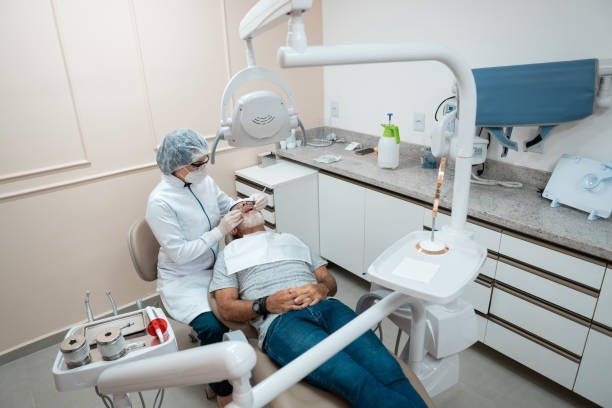Gynecomastia is a condition where males develop enlarged glandular tissue due to hormonal imbalances or other factors. This issue affects men of all ages and can have physical and emotional consequences. If you’re dealing with gynecomastia, you’re not alone. Understanding this condition’s effects on the body and mind can help you better manage its impact.
How Gynecomastia Physically Affects the Body
Gynecomastia is primarily a physical condition, so it’s essential first to understand how it impacts the body. The main symptom is an enlargement of glandular tissue in men, which can vary from slight puffiness to more noticeable growth. This enlargement typically occurs due to an imbalance between estrogen and testosterone levels.
Other physical effects include:
-
Discomfort and Pain: Some men may experience tenderness or discomfort in the chest area. In some cases, the condition might cause mild to moderate pain, especially when touched or during physical activities.
-
Asymmetry: Gynecomastia often affects both breasts, but in some cases, one breast may grow more significant than the other, leading to asymmetry. This unevenness can be particularly frustrating, as it may be more noticeable in specific clothing or activities.
-
Weight Gain and Fat Distribution: Hormonal imbalances that lead to gynecomastia might also affect other body areas, causing fat to accumulate in the abdomen or hips.
It’s worth noting that the condition doesn’t pose a serious medical threat, but it can cause enough physical discomfort that men seek out treatment options. For individuals in specific areas looking for local expertise, gynecomastia in Newcastle clinics offer consultations and treatment plans to address this condition.
How Gynecomastia Psychologically Affects Men
While the physical symptoms of gynecomastia are more visible, the psychological effects can be just as challenging, if not more so. Dealing with enlarged glandular tissue can have a significant impact on a man’s mental health, self-esteem, and overall quality of life.
-
Low Self-Esteem: One of the most common psychological effects is low self-esteem. Men with gynecomastia may feel embarrassed about their appearance, especially in situations where the chest is more exposed, such as at the beach or during sports activities.
-
Body Image Issues: Gynecomastia can affect how men perceive their bodies. Many may feel like their appearance is less masculine, which can cause a negative body image. This can lead to social withdrawal and a desire to avoid situations that highlight the condition.
-
Anxiety and Depression: The mental strain caused by gynecomastia can lead to anxiety and even depression in some men. The constant worry about how others perceive them or the frustration of living with the condition can take a toll on mental well-being.
-
Social Isolation: Men with gynecomastia may avoid social gatherings, sports activities, or any setting where their chest might be visible. This can lead to feelings of isolation, further deepening the emotional impact.
Fortunately, treatment options such as gynecomastia surgery in Woodstock are available for those seeking relief from both the physical and emotional effects of this condition. Surgery can be an effective solution for those who want to reduce glandular tissue and regain confidence in their appearance.
Exploring Treatment Options
There are various ways to treat gynecomastia, depending on the cause and severity of the condition. Treatment options range from non-invasive approaches to surgery. Here are some common treatments that men consider:
-
Lifestyle Changes: Sometimes, gynecomastia can be caused by weight gain or the use of certain medications or substances. In such cases, lifestyle changes like losing weight or stopping medication can help reduce glandular tissue growth. Regular exercise and a healthy diet can also improve overall body composition.
-
Medication: In some cases, doctors may prescribe hormone therapy or medications to balance hormone levels. These treatments can sometimes reduce the size of the glandular tissue without surgery, though results vary from person to person.
-
Surgery: For men who want a more permanent solution, surgery may be the best option. Gynecomastia surgery removes the excess glandular tissue and can reshape the chest to a more typical male contour. Surgical procedures are usually straightforward, with recovery times varying based on the individual.
It’s essential to consult a healthcare professional to determine the best course of action based on the cause and severity of the condition. In more severe cases, surgical intervention like gyno surgery Toronto offers practical solutions for those looking for a long-lasting fix.
Psychological Support and Coping Strategies
Dealing with the psychological effects of gynecomastia can be just as important as addressing the physical symptoms. Some ways to manage the emotional impact include:
-
Counseling or Therapy: If you’re struggling with anxiety, depression, or self-esteem issues related to gynecomastia, talking to a counselor or therapist can help. A professional can offer strategies to cope with the emotional burden and improve your mental health.
-
Support Groups: Connecting with others who have gone through similar experiences can be incredibly helpful. Whether online or in-person, support groups can offer advice, encouragement, and a sense of community.
-
Open Communication: Talking openly with trusted friends or family about how you’re feeling can provide emotional support and help relieve some of the isolation or embarrassment you might be experiencing.
In many cases, the combination of psychological support and medical treatment can significantly improve the quality of life for men with gynecomastia.
Final Thoughts
Gynecomastia can have both physical and emotional impacts on men, but it’s important to remember that you’re not alone. Whether you’re dealing with discomfort, social anxiety, or self-esteem issues, there are options available to manage and treat the condition. From lifestyle changes and medications to surgery and psychological support, you can find a path that helps you feel more comfortable in your skin.



